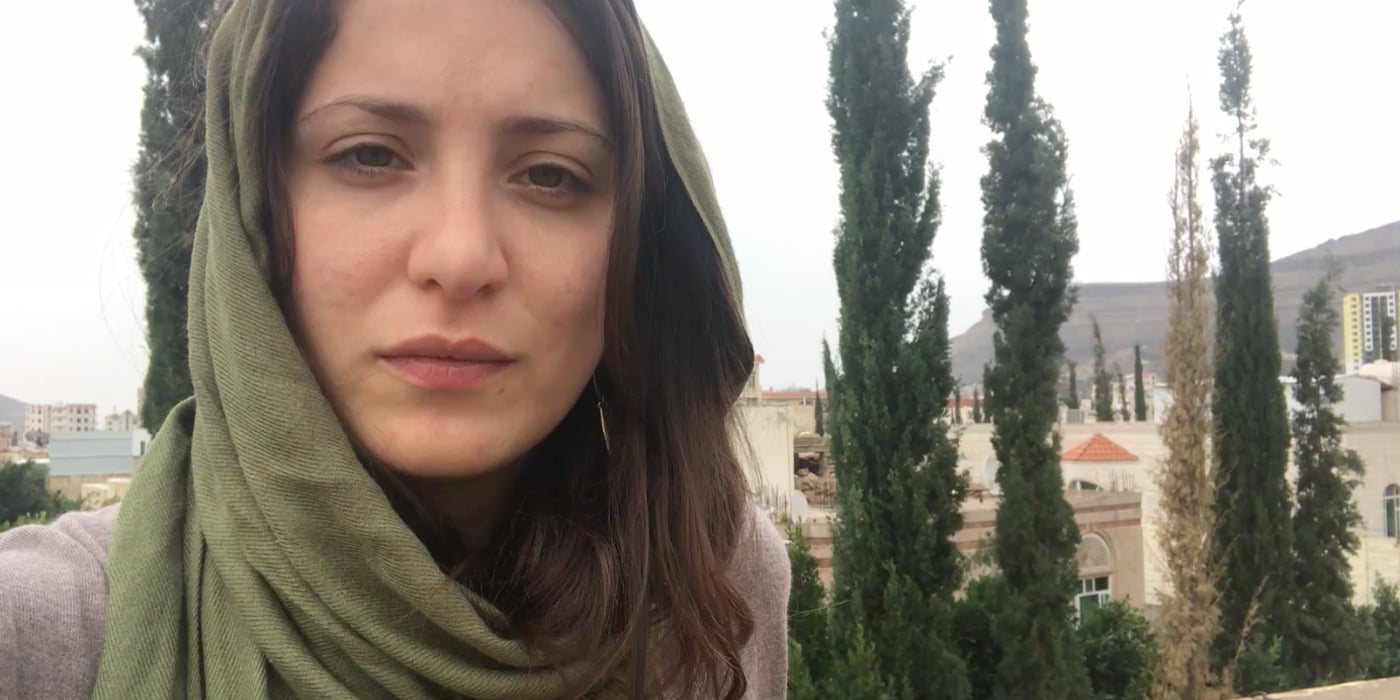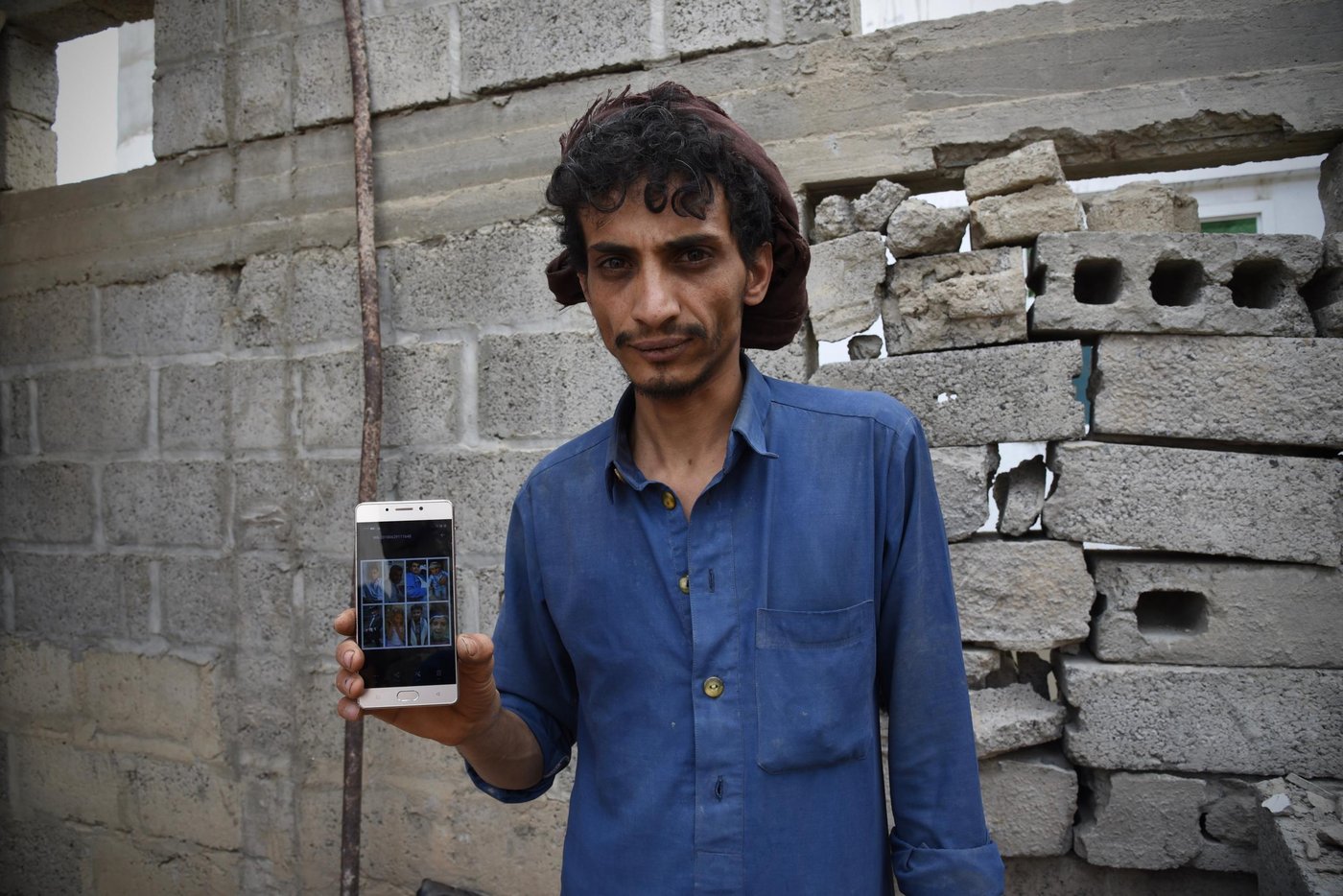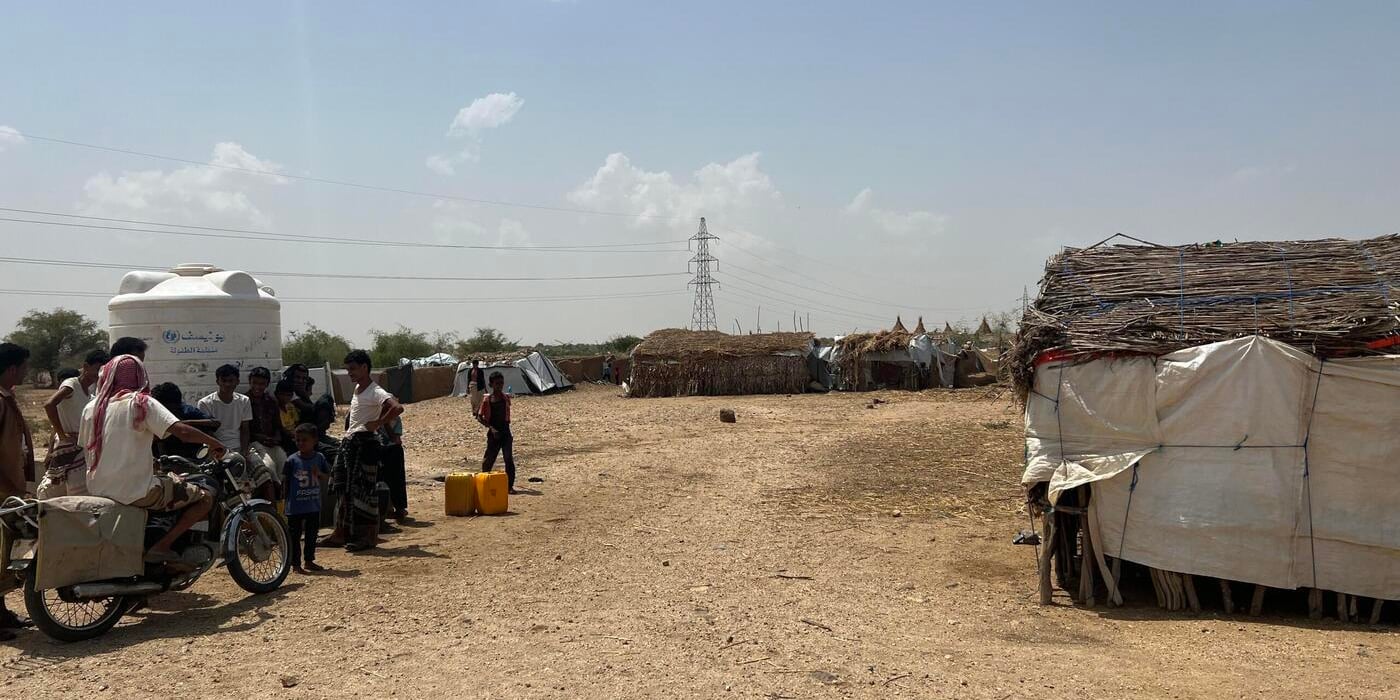
"When I first arrived in the capital of Sana’a, it struck me how life tends to carry on, even in the midst of a brutal war. The streets were busy with cars and pedestrians, children were playing. Most shops were open, and I could hear the mullah calling to mid-day prayer from the mosque," recounts the Norwegian Refugee Council’s (NRC) media and communications adviser, Becky Bakr Abdulla.
Destruction everywhere
Becky has just spent two weeks in one of the world’s worst humanitarian crises. She was often reminded that she was in a warzone.
"Planes were circling over the city. Time and again we would hear explosions and wonder where they hit. The ceaseless sound of bombers reminded me that anything might happen at any time."
"In Yemen you see destruction everywhere – houses that used to be people’s homes left in ruins, large holes in the ground where airstrikes have hit and burnt out cars in the streets."

Lost eight family members
The civilian death toll in Yemen is extremely high. More than 60,000 people have been killed or injured since the escalation of violence in 2015.
"I met with a family who lost eight of its family members in an airstrike," says Becky. "Their house was hit this summer and there’s a big hole in the ceiling. The remaining family seemed completely traumatised. I spoke with the father and his two adult sons. Their eyes expressed a hopeless glance. 'We have no future anymore,' they said. 'All we can do now, is to find food for the children so that they survive.'"
They are targeting civilians more than each other. This war on innocent people must stop.Yusuf, 28, lost eight family members in an airstrike.
Poverty and economic collapse
In addition to the signs of war, poverty was highly visible in the streets of Sana’a.
"People who used to have enough to get by now beg in the streets to survive. This is the reality for many Yemenis today and has been so for more than three years.
Already prior to the war, Yemen was one of the poorest countries in the region. Now, economic collapse has pulled the country into a humanitarian emergency. According to Becky, its people experience this in three ways: Prices on everyday products such as rice and bread have rocketed, many people do not receive their salaries and the value of the Yemeni riyal has dropped catastrophically.
"The country’s economy is about to crash and some people have started taking to the streets to protest. Many have reached their bursting point."
Disease outbreaks
In addition to daily attacks and economic crisis, cholera and other diseases rage. Many internally displaced people live in camps lacking proper sanitary conditions, affecting the inhabitants’ health.
"Their lives have been reduced to trying their best to survive every day," says Becky. "The people I met told me: 'We never believed we would find ourselves in his situation, we have lost all our dignity.'"
Read also: Ten things you should know about the crisis in Yemen
It’s impossible for me to understand how all these states, both those directly involved with the conflict and western countries, like Norway, who are indirectly complicit through our Pension fund, are allowed to enter a country like Yemen and put the lives of an entire population in ruins.Becky Baks Abdulla, NRC's media and communications adviser
Shameful
Becky met people her own age who told her that they feel the entire world is against them. "As Yemeni citizens they feel they don’t have any opportunities, that they are trapped in their war-torn country and have no choice but to try to survive."
She thinks it’s shameful that the world lets the war continue.
"It’s impossible for me to understand how all these states, both those directly involved with the conflict and western countries, like Norway, who are indirectly complicit through our Pension fund, are allowed to enter a country like Yemen and put the lives of an entire population in ruins. It is absolutely crucial that the US, UK, Iran and France push parties to this conflict to agree on an immediate ceasefire and a political solution.”
Our work
The Norwegian Refugee Council (NRC) is present in Yemen, but restrictions from both sides to the conflict make it hard for us to reach people in need with humanitarian assistance.
"We provide aid such as cash, but the environment is extremely difficult to navigate."
Becky is impressed by her colleagues who have lived and worked in the conflict for more than three years.
"Many of them have been displaced themselves and live in persistent fear for the lives of their families and themselves. Despite this, they carry on with their daily work to assist fellow Yemenis in need. They live under enormous pressure and the work they do is admirable. I travelled back on a UN flight to my safe home in Norway, while they stay behind and continue the work."


